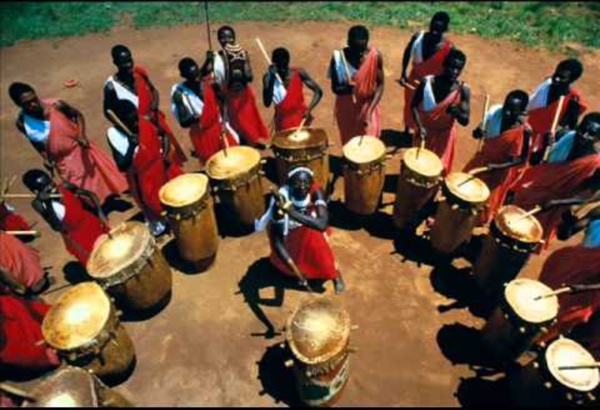



Africa, Uncolonized: A Detailed Look at an Alternate Continent | Big Think What if the Black Plague had killed off almost all Europeans? Then the Reconquista never happens. Spain and Portugal don't kickstart Europe's colonization of other continents. And this is what Africa might have looked like. The map – upside down, to skew our traditional eurocentric point of view – shows an Africa dominated by Islamic states, and native kingdoms and federations. This map is the result of an entirely different course of history. To arrive at this map, Cyon constructed an alternative timeline. Allohistorical Africa, seen from our North-up perspective. European colonies in Africa in 'our' 1913. Cyon borrowed this counterfactual hypothesis from The Years of Rice and Salt, an alternate history novel by Kim Stanley Robinson. Cyon focuses on Africa – or rather, Alkebu-Lan – which in his version of events doesn't suffer the ignomy and injustice of the European slave trade and subsequent colonization. The Arabic is no accident. Some familiar-sounding names around the Great Lakes.
African Music Xhosa - Introduction, Location, Language, Folklore, Religion, Major holidays, Rites of passage PRONUNCIATION: KOH-suh LOCATION: South Africa (eastern, urban areas) POPULATION: 6 million LANGUAGE: Xhosa (Bantu) RELIGION: Traditional beliefs (supreme being uThixo or uQamata ); Christianity The word Xhosa refers to a people and a language of South Africa. Well before the arrival of Dutch in the 1650s, the Xhosa had settled the southeastern area of South Africa. Christian missionaries established their first outposts among the Xhosa in the 1820s, but met with little success. Under apartheid (a government policy requiring the separation of races), the South African government created separate regions that were described as Bantustans (homelands) for black people of African descent. These regions were proclaimed independent countries by the apartheid government. Before the arrival of the Europeans in the late 1600s, Xhosa-speaking people occupied much of eastern South Africa. The Xhosa language is properly referred to as isiXhosa . Ramphela, Mamphela. Switzer, Les.
Indonesian Music The Khoisan Once Were Kings Of The Planet. What Happened? : Goats and Soda In Namibia today, members of the ancient tribe of hunter-gatherers still forage. New genetic research reveals they were once the largest group of humans. Stephan C. Schuster/Penn State University hide caption toggle caption Stephan C. Schuster/Penn State University In Namibia today, members of the ancient tribe of hunter-gatherers still forage. Stephan C. Some 22,000 years ago, they were the largest group of humans on earth: the Khoisan, a tribe of hunter-gatherers in southern Africa. Today, only about 100,000 Khoisan, who are also known as Bushmen, remain. How did it happen that a group that was once in the majority is now so small? First of all, the fact that 7 billion people now live on earth makes it almost impossible for us to understand how few people lived in the past. What happened to tip the balance? Changes in the climate. The Bushmen know which plants and herbs are good to eat — and which will heal their ailments. How do the Khoisan maintain their way of living today?
Japanese Music The Khoikhoi and the San Celtic Music Photographs of the Islamic Tuareg tribe where women embrace sexual freedoms The Tuareg have maintained their way of life for centuries, crossing from one side of the world's largest desertYet beneath the traditional way of life lies a progressive society where women's rights have been embracedFamilies trace their line through the women and not the men, with women owning the tents and animals Pre-nups and divorce are everyday - with parents throwing their recently separated daughters 'divorce parties'But the rise of extremist Islam in the region could put all this under threat as a more conservative lifestyle prevails By Flora Drury For Mailonline Published: 06:55 GMT, 24 June 2015 | Updated: 15:49 GMT, 25 June 2015 For centuries the nomadic Tuareg tribe have crossed the Sahara desert, sometimes being led by the blind who used their heightened sense of smell and taste to pick a safe path across the ever-shifting sands. But behind the ancient way of life is a culture so progressive it would even make some people in liberal western cultures blush.
American Music